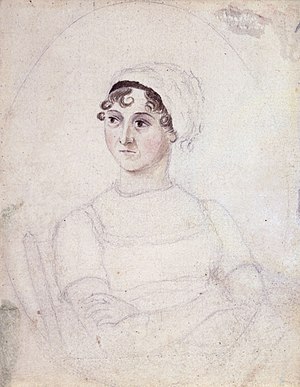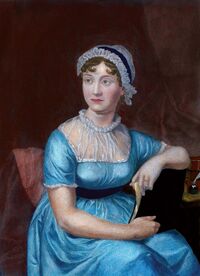Jane Austen
Relevance
Mentioned In
Wikipedia Information
 |
Jane Austen ( OST-in, AW-stin; 16 December 1775 – 18 July 1817) was an English novelist known primarily for her six novels, which implicitly interpret, critique, and comment upon the British landed gentry at the end of the 18th century. Austen's plots often explore the dependence of women on marriage for the pursuit of favourable social standing and economic security. Her works are an implicit critique of the novels of sensibility of the second half of the 18th century and are part of the transition to 19th-century literary realism. Her deft use of social commentary, realism and biting irony have earned her acclaim among critics and scholars. The anonymously published Sense and Sensibility (1811), Pride and Prejudice (1813), Mansfield Park (1814), and Emma (1816), were a modest success but brought her little fame in her lifetime. She wrote two other novels—Northanger Abbey and Persuasion, both published posthumously in 1817—and began another, eventually titled Sanditon, but died before its completion. She also left behind three volumes of juvenile writings in manuscript, the short epistolary novel Lady Susan, and the unfinished novel The Watsons. Since her death Austen's novels have rarely been out of print. A significant transition in her reputation occurred in 1833, when they were republished in Richard Bentley's Standard Novels series (illustrated by Ferdinand Pickering and sold as a set). They gradually gained wide acclaim and popular readership. In 1869, fifty-two years after her death, her nephew's publication of A Memoir of Jane Austen introduced a compelling version of her writing career and supposedly uneventful life to an eager audience. Her work has inspired a large number of critical essays and has been included in many literary anthologies. Her novels have also inspired many films, including 1940's Pride and Prejudice, 1995's Sense and Sensibility and 2016's Love & Friendship.
